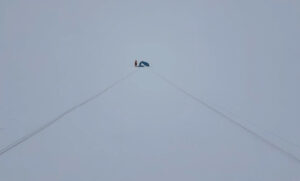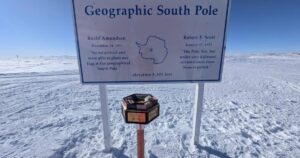When Colin O’Brady tried to claim the first unsupported and unassisted crossing of Antarctica in 2019, the polar adventure world rallied together to point out the inaccuracy of the American’s assertions. O’Brady had unwittingly unmasked a decades-old issue for the adventure community: the over-hyped, inaccurate, sometimes mistaken, and sometimes deliberately false claims of adventurers.
For years, polar travelers have been claiming ever more obscure or tenuous firsts, and by and large the public, media, and record organizations (such as Guinness World Records) played along, because there were no clear, uniform standards. Not all previous travelers set out to hoodwink knowingly, but a lack of knowledge of historical context and no standardized language or expedition comparison system led to a bit of a mess in the record books.
So in the wake of the O’Brady saga, veteran polar guide Eric Philips, along with other senior members of the polar community, decided that standardization was overdue in the polar world. Over the past two years, they developed The Polar Expeditions Classification Scheme (PECS), which was launched earlier this week.

Skiing unsupported from the Ross Ice Shelf to South Pole via the Reedy and Kansas Glaciers. Photo: Eric Philips
The aim of PECS is to harmonize the language of polar adventure. Using keywords and definitions, the classification system allows adventurers, media, and the public to accurately and equitably compare polar journeys.
Without such a unified classification system, we have seen polar adventurers squabble endlessly over details, such as what constitutes support (e.g. a food drop), assistance (e.g. kite skiing), or geographical issues, such as what defines crossing a frozen landmass like Antarctica. These details might not matter if your expedition is just for personal pleasure, but there are those who earn their money guiding, speaking, and writing about polar travel. Inaccurate claims unjustly steal credit from those who have accomplished truly amazing feats and deserve full recognition.

Support? Assist? How does kiting fit in? Photo: Geoff Wilson
This system might be new to the world of polar travel, but any mature, self-regulating community needs a common language and unambiguous way to classify. Take science. Throughout the coronavirus pandemic, scientists have pooled and harmonized data from clinical trials of treatments and vaccines conducted across different countries and continents. This is only possible thanks to standardized data collection methods and coding systems.
The newly launched PECS website gives an extensive taxonomy of definitions relating to polar travel, as well as a do-it-yourself tool to allow future adventurers to categorize their own expeditions. The PECS group has also teamed up with Guinness World Records to ensure accurate polar expedition labeling and record-keeping. Importantly, a legacy agreement keeps bona fide pre-PECS records intact.
Eric Philips gives a detailed overview of the system in this previous ExWeb article and video interview.






